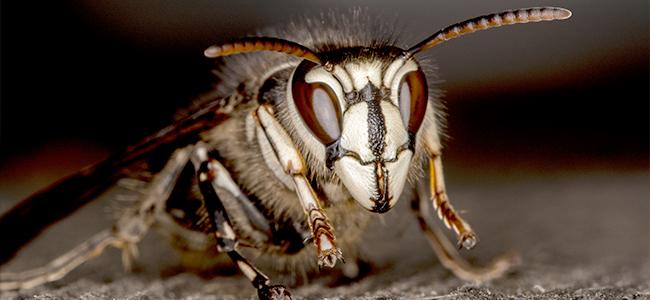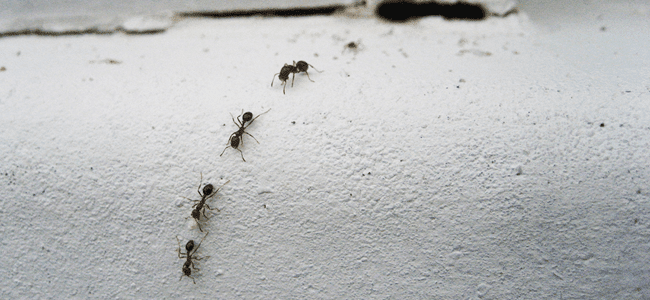
Why Professional Wasp Removal In DC is Worth It
07/09/2019
As we head out of spring and into summer you're going to start noticing more stinging insects buzzing around in your yard. This isn't necessarily a...
READ MORE >
08/24/2011
Why do beekeepers smoke bees? No, not because it’s cheaper than a cigarette! The simple answer is …so they don’t get stung!
The smoker is a device used by beekeepers like me to puff gentle whiffs of cool, white smoke over the supers as I open up my beehives to take a look inside. I use the bellows to puff puff white smoke at the hive entrance, and also after I crack the top of the hive off. Not so much as to give them bronchitis, so to speak, but enough to get a quieting response. In this case, a little dab of smoke will do ya.
The fuel I use in my smoker is simply pine needles or dried grass, but beekeepers use a variety of things such as cotton plugs, leaves, twigs, newspaper, etc. The trick is keeping the smoker lit and not using hot flaming smoke that will torch your bees, but the white cooler smoke; this is familiar to us who in the past have ever burned wet leaves or piled leaves or straw on top of a nicely going fire to get it to smolder-the campfire smell type of smoke!
The other trick is to not burn yourself or set your yard, house, car (if you must travel to your bee yard), or hive full of flammable beeswax or yourself on fire! I guess it is also important to carry homeowner’s insurance with a beekeeping rider, and to remember: stop, drop and roll- from first grade fire prevention and safety class! Believe me, every beekeeper has a story about the smoker that he/she was certain was “out” and then relit on its own to his or her surprise, with sometimes scary results! Anyway, I digress…
Smoke has a most interesting effect on honeybees. Initially, as the smoke encounters the bees, they race inside the hive, down deep into the various frames that contain honey. They then engorge themselves with honey because they assume the hive is on fire. They think they will need to abandon the hive and take some stores of honey with them in the process to set up a new hive elsewhere. It’s a survival instinct.
With their little bee bellies all full of honey, it is impossible for them to sting me. Their distended bellies prevent the ovipositor (or stinger mechanism) to function properly at the end of their abdomens! So, it gives me the beekeeper the time to take a quick look inside, do whatever I need to do, get out and close the hive back up. And the bees are then relieved to learn their hive is not on fire, and they can go back to their normal routines.
Though the secret of smoking bees has been known for thousands of years, the scientific explanation for how it works has come about more recently. Under normal circumstances if a beehive is threatened, guard bees will release a volatile pheromone substance, iso-pentyl acetate is its big official chemical name, better known as alarm pheromone. This alerts the middle-aged bees in the hive — the ones with the most venom — to defend the hive by attacking the intruder. When smoke is blown into the hive first, however, the guard bees' receptors are dulled and they fail to sound such an alarm.
Now I know some beekeepers who wear no personal protective equipment at all when going into their hives. This is called going it bear-handed or gloveless (or maybe foolhardy!?) (I personally prefer to wear my bee suit fully outfitted with veil and gloves even in August, thank you very much!) But, you will seldom see a wizened old beekeeper enter a hive without smoke, especially in the late summer months. And, if you are going into a hive with no gloves or veil on, smoke is suddenly your very best friend!
Smoke needs for work in a beehive vary with the season. Early in the spring, the bees are very gentle, the hive is smaller-maybe just several thousand bees; and it is often possible for me to do my hive work with little to no smoke at all. (In fact, using smoke on a newly set up hive in early spring is not recommended and can cause them to abscond and fly off to your neighbor’s balcony or the nearest tree. Not a neighborly thing to do!)
As true with most of us with the heat of the later summer months, bees get a bit irritated. The hive is now HUGE. There are upwards of 100,000 bees in a healthy hive. They have honey stores they want to defend. They are thirsty from the late summer heat and drought. They are not happy! It is definitely in my best interest and safety as a beekeeper to use smoke while working in the hive.
Another benefit of smoke is fewer bee worker or even queen fatalities! Since the bee workers all run down into the hive to escape smoke and to gather honey, they are not near the frames on which I’m working. This prevents them from accidentally being crushed , injured or killed as I shuffle frames around to check for eggs, honey, and potential diseases or parasites present.
I really dislike killing even one of my girls, even though I know in this truly socialistic society it is not the individual that matters, but the colony as a whole; but each of those individuals is so very hard working, I don’t want to kill any of them if I can avoid it; and if the queen should be killed, the colony can die! When I accidentally do kill one of my workers, as it can’t help but happen to some extent with so many individuals with which to deal, I always mutter an apology under my breath, and pray it wasn’t her majesty, the queen!
The use of smoke in beekeeping is an important tool. So, only in this beekeeping case, do I highly recommend smoking!

07/09/2019
As we head out of spring and into summer you're going to start noticing more stinging insects buzzing around in your yard. This isn't necessarily a...
READ MORE >

03/15/2017
One day it's sixty degrees, the next it's snowing--- so when can we expect the return of some of the most dreaded springtime pests? And where have ...
READ MORE >

08/13/2014
Many women will go to great lengths to feel beautiful and the cosmetic companies know this. Did you ever consider that your favorite shade of lipst...
READ MORE >

09/24/2013
Ladybugs are beneficial garden insects but when autumn comes, they can become a menace indoors....
READ MORE >

Protect your home and family from nuisance and potentially damaging pests with a Preferred Care home pest control plan. Starting at $49/month

Don't let the bed bugs bite a second longer. Contact American Pest for the most comprehensive bed bug control in the industry. Learn More

Our certified rodent control pros will put an end to your frustration by getting rid of rats and mice inside your home. Learn More

Say goodbye to wood-destroying termites in your home when you contact American Pest for expert termite control. Learn More

Trust American Pest to deliver professional backyard tick control services that are guaranteed to get results. Learn More

Don't spend the warm-weather season indoors, find out how American Pest's professional treatments get rid of mosquitoes. Learn More
Fill out the form and recieve feedback in less than 5 minutes. For immediate service please call.